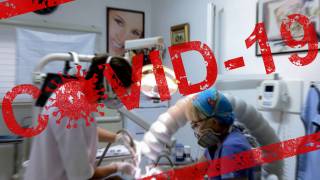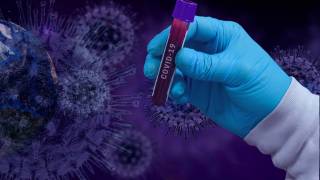Common Anti-Inflammatory Drug Added to COVID-19 Treatment Study

A commonly used anti-inflammatory treatment has been added to the Randomised Evaluation of COVid-19 thERapY (RECOVERY) study, the world’s largest clinical trial of treatments for patients hospitalized with COVID-19.
Professor Peter Horby at the University of Oxford and co-Chief Investigator of the RECOVERY trial, said in a press release on November 26, 2020, ‘Colchicine is an attractive drug to evaluate as it is very well understood, inexpensive and widely available. If it works it would be another COVID-19 treatment that could be used immediately worldwide, even in the poorest countries.’
It is anticipated that at least 2,500 patients recruited to the RECOVERY trial will be randomly allocated to receive colchicine plus usual standard-of-care, and results will be compared with at least 2,500 patients who receive the usual standard-of-care on its own.
The Colchicine dosage used will be 1000 micrograms for the first treatment, then 500 micrograms every 12-hours for a total of 10 days, or until discharged if sooner.
This study is taking place in 176 hospital sites across the UK, with over 18,000 patients recruited in England, Scotland, Wales, and Northern Ireland.
The decision to add Colchicine to the trial was made by the University of Oxford researchers and trial steering committee leading the trial in conjunction with the Chief Medical Officer, following a recommendation by the UK COVID-19 Therapeutics Advisory Panel.
According to the US government’s MedlinePlus, Colchicine is in a class of medications called anti-gout agents. Colchicine is used to prevent gout attacks, which are sudden, severe pain in one or more joints caused by abnormally high levels of a substance called uric acid in the blood in adults. Colchicine (Colcrys) is also used to relieve the pain of gout attacks when they occur.
Colchicine is also used to treat familial Mediterranean fever (FMF) in adults and children 4 years of age and older.
Colchicine is not a pain reliever and cannot be used to treat pain that is not caused by gout or FMF.
The other treatments currently being investigated in the RECOVERY trial are Tocilizumab, Convalescent plasma, REGEN-COV2, and Aspirin, at a dose which may prevent the complications of blood clotting, said these researchers.
The enrolment of patients to azithromycin, an antibiotic being used for its anti-inflammatory properties has already closed. Over 2,500 COVID-19 patients were randomly allocated to receive azithromycin and will be compared with over 5,000 patients randomly allocated to usual standard-of-care on its own.
The main outcome of the RECOVERY trial will assess is mortality after 28 days.
Other outcomes include the impact on hospital stay and the need for ventilation. Depending on recruitment rates, it is likely to be several months before there is enough evidence to conclude whether colchicine has a significant benefit in COVID-19 patients, added these researchers.
The RECOVERY Trial is conducted by the registered clinical trials units with the Nuffield Department of Population Health in partnership with the Nuffield Department of Medicine. The trial is supported by a grant to the University of Oxford from UK Research and Innovation/National Institute for Health Research and by core funding provided by NIHR Oxford Biomedical Research Centre, Wellcome, the Bill and Melinda Gates Foundation, the Department for International Development, Health Data Research UK, the Medical Research Council Population Health Research Unit, and NIHR Clinical Trials Unit Support Funding.
Additionally, MedlinePlus advises ‘before taking Colchicine, tell your doctor and pharmacist if you are allergic to colchicine, any other medications, or any of the ingredients in colchicine tablets or solution. Ask your doctor or pharmacist or check the medication guide for a list of ingredients.’
PrecisionVaccination publishes research-based news.
Our Trust Standards: Medical Advisory Committee
























